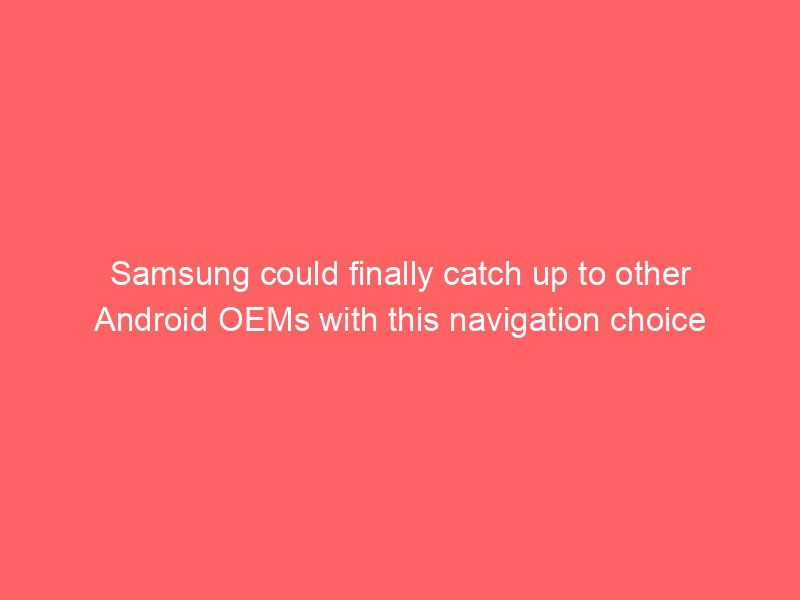
Samsung’s Bold Move: Embracing the Android Ecosystem
The tech world has been buzzing with excitement regarding Samsung’s recent decision to join the Android Open Ecosystem (AEO). This landmark move signifies Samsung’s commitment to parity and ultimately, catching up to the likes of Google and Apple in the smartphone market.
A Bold Leap into the Future
For years, Samsung’s focus has been on its own Exynos processors and the exclusive Galaxy operating system. This collaboration with Google will undoubtedly bring significant changes to the Android landscape. Here’s how:
* Unified Ecosystem: Samsung’s vast Android manufacturing capacity will be integrated into the AEO, allowing for seamless software updates and unified user experiences across Samsung and Google devices.
* Greater Innovation: Samsung’s expertise in design and user experience will infuse Android devices with innovative features and sleek aesthetics.
* Reduced Development Costs: By sharing development resources and expertise, both companies can significantly reduce the costs associated with maintaining two separate ecosystems.
A Win for Users
This strategic move is expected to offer several benefits for users:
* Wider Device Choice: More Android phones will be compatible with Samsung’s latest flagship devices, expanding the user base for both companies.
* Improved Security and Privacy: Google’s rigorous security measures will be enforced on Samsung devices, offering enhanced protection against malware and data breaches.
* Seamless Software Updates: Samsung devices running Android will receive regular updates and security patches directly from Google, ensuring continued performance and security.
A Complex Landscape
While the news is exciting, it’s important to acknowledge the complexity of this move:
* Samsung’s Market Share: While Samsung boasts the largest smartphone market share, Google’s Android devices still hold a dominant position in the market. This partnership could potentially disrupt the established balance.
* Control and Transparency: The decision to join the AEO raises concerns about control and transparency. Users might face limitations or restrictions on accessing or modifying their data in the future.
* Long-Term Impact: The success of this collaboration will depend on the seamless integration of Samsung’s design and user experience with Google’s software and services.
Conclusion
Samsung’s decision to join the Android Open Ecosystem is a significant milestone in the tech world. This move signifies a bold leap into the future, offering users a wider range of devices, improved security, and seamless software updates. While challenges remain, the potential benefits of this partnership are undeniable. The future of Android is looking more exciting than ever, with Samsung poised to become a major player in this ever-evolving market.







